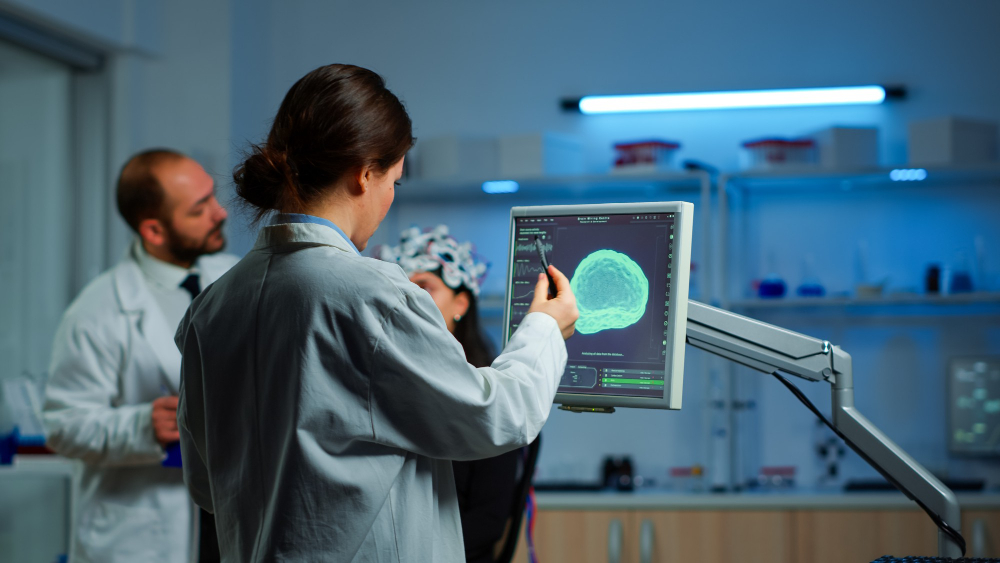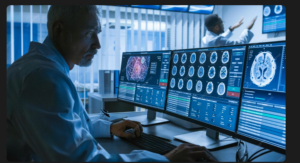For neurologists and neurosurgeons, every second matters, and every detail of the brain’s structure or vascular system must be interpreted with razor-sharp accuracy. This is why many neurologists rely on clinical neuroradiology consulting for precise results. They are the behind-the-scenes experts who ensure no abnormality goes unnoticed and no diagnosis is delayed. How? Well, here you go!
Table of Contents
ToggleA Brief Overview
A neurologist is trained to diagnose and treat brain and nervous system disorders. A neurosurgeon goes one step further and performs surgical interventions on these systems. However, both professionals heavily depend on high-resolution imaging to map out their strategies, and interpreting those complex MRIs, CTs, angiograms, and other neuroimaging studies- that’s the job of a clinical neuroradiologist.
The Role of Clinical Neuroradiology in Patient Care
A neurologist is trained to diagnose and treat brain and nervous system disorders; whereas, a neurosurgeon goes one step further, as they perform surgical interventions on these systems. However, both professionals heavily depend on high-resolution imaging to map out their strategies, and interpreting those complex MRIs, CTs, angiograms, and other neuroimaging studies- that’s the job of a clinical neuroradiologist. Neurologists and neurosurgeons do not have the sufficient training or expertise to opine on neuroimaging independently making the consultation of a neuroradiologist essential for clinical care.
Neuroradiologists not only interpret the images of brain and spine; they also provide expert insight into the clinical diagnosis and treatment planning of the disorders involving the brain, spine, and surrounding structures. Clinical neuroradiologists spend years training in both radiology and neuroradiology to interpret subtle findings that general radiologists and other clinicians and doctors who are not radiologists often misinterpret or overlook.
Here’s a quick look at how neuroradiology fits into the patient care journey:
| Medical Professional | Key Responsibility | How Neuroradiology Supports Them |
| Neurologist | Diagnoses brain and nervous system issues | Provides imaging interpretations to guide diagnosis, non-surgical, and surgical treatment |
| Neurosurgeon | Performs surgery on brain/ spine conditions | Guide diagnosis, surgical indication, surgical approach, and clarify surgical outcome and complications |
| Emergency room physician or trauma surgeon | Stabilize acute neurological events like traumatic brain or spine injury, stroke, seizures) | Quickly identifies life-threatening and potentially painful conditions such as cord compression, brain herniation, strokes, fractures, or bleeds, as well as less urgent findings via imaging |
| Oncologist | Tests brain/ spinal tumors | Uses neuroradiology reports to determine tumor type, size, response to treatment, and treatment complications |
Real-Time Decision Making
Imagine a patient comes into the ER with sudden paralysis on one side. A neurologist suspects a stroke. In this situation, every minute of delay can lead to permanent brain damage. A clinical neuroradiology consultant quickly reviews the brain scan, identifies a clot in the middle cerebral artery, and provides input on whether the patient qualifies for a thrombectomy or clot-busting drugs, and their rapid interpretation saves lives.
Even in selective neurosurgery, like the removal of a brain tumor or aneurysm clipping, pre-op planning is crucial, as surgeons need to know the exact size, shape, and location of the issue, plus its relation to surrounding vessels and brain tissue. One inaccurate reading could risk major complications, but clinical neuroradiologists bring a level of precision that makes even the most complex surgeries safer.
Conclusion
Clinical neuroradiology consultants are the silent heroes in brain and spine care. They help to improve patient outcomes and ensure that patients receive the safest, most accurate, and most timely treatment possible. Good neurologists and neurosurgeons frequently consult and rely on a neuroradiologist for clinical diagnosis and guidance of patient care.
So, the next time you see a crisp brain MRI image, know that behind it is a neuroradiology expert connecting the dots and saving lives. Looking for professionals for clinical neuroradiology consulting? Contact our team at Neuro Experts, PC today!








